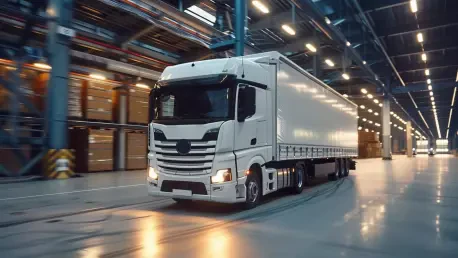The logistics industry stands at the heart of global supply chains, serving as a vital sector with a complex interplay of transportation, warehousing, and distribution. As the backbone for retail, e-commerce, and manufacturing, it carries immense significance in daily operations and economic stability. With increasing consumer demands and sustainability pressures, the logistics landscape is continuously evolving. The industry is dominated by key players and significantly influenced by technological advancements, including automation and data analytics. Additionally, stringent regulations continue to shape the industry’s operations, compelling firms to adapt and innovate.
Market Trends and Technological Influences
Emerging Trends in Logistics
Among the notable trends reshaping logistics are sustainability and digital transformation. Consumer preferences are gravitating toward eco-friendly practices, prompting companies to innovate with greener technologies. E-commerce growth is driving demand for efficient last-mile delivery solutions, while autonomous vehicles and drones are beginning to play a role. Furthermore, artificial intelligence and machine learning are enhancing supply chain efficiencies, offering predictive analytics to optimize routes and inventory management. This shift opens new opportunities for market players to capitalize on the evolving needs of consumers via technological integration.
Market Insights and Growth Projections
Current data suggests an upward trajectory within the logistics market, with substantial growth expected in the next few years. Performance indicators show increased investment in digital technologies and alternative fuel vehicles, underscoring the sector’s commitment to innovation and sustainability. Market forecasts indicate a robust expansion driven by the demand for efficient, cost-effective, and sustainable logistics solutions. Insights also project significant advancements in vehicle technology that could further reduce carbon footprints and operating costs, aligning with broader sustainability goals and regulatory expectations.
Challenges and Complexities in the Industry
The logistics industry faces numerous challenges that are both multifaceted and dynamic. The need to meet regulatory compliance while addressing technological disruptions creates operational complexities. Security and data privacy concerns pose additional hurdles as the industry shifts toward digital solutions. Companies must also navigate fluctuating market demands and geopolitical influences affecting global supply chains. Strategies to overcome these challenges include investing in resilient technologies, enhancing safety protocols, and fostering collaborative partnerships across the logistics ecosystem to ensure adaptability and growth.
Regulatory Landscape and Compliance
Navigating the regulatory landscape is pivotal for logistics firms, as it encompasses various laws and standards pertinent to transport, emissions, and safety. Compliance with these regulations ensures operational legality and competitiveness within the market. Recent changes emphasize reducing emissions and enhancing sustainability, framing compliance as a key driver of strategic decision-making. Incorporating security measures and staying ahead of regulatory updates mitigate risks, fostering a proactive approach within the industry. Consequently, this pushes companies to innovate, balancing regulatory adherence with market competitiveness.
Future Outlook and Industry Evolution
Looking ahead, the logistics industry stands on the cusp of significant transformation, with emerging technologies set to redefine operational paradigms. Innovation remains a central theme, with electric vehicles, AI-based solutions, and blockchain technology poised to disrupt traditional practices. Consumer expectations for sustainable and transparent operations will likely influence future growth areas. As global economic conditions evolve, continuous adaptation will be crucial for industry leaders. Embracing these changes not only aligns with regulatory incentives but also fosters a competitive edge amid shifting market dynamics.
Conclusion and Recommendations
The findings highlight the logistics industry’s strategic shift toward sustainability through technological integration and innovation. As Co-op’s adoption of the Supra HE 11 MT units exemplifies, investing in advanced fleet technology offers significant environmental and operational benefits. Moving forward, companies are encouraged to proactively address compliance and regulatory challenges, focusing on sustainable solutions that align with consumer expectations. The future promises a dynamic landscape where continued technological investments will determine industry leaders, opening avenues for growth and investment in technological advancements and sustainability initiatives.









